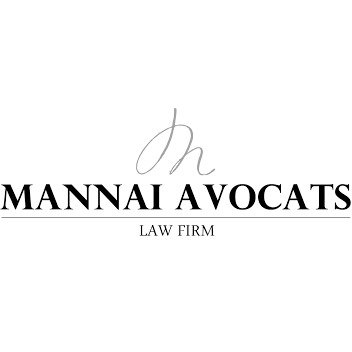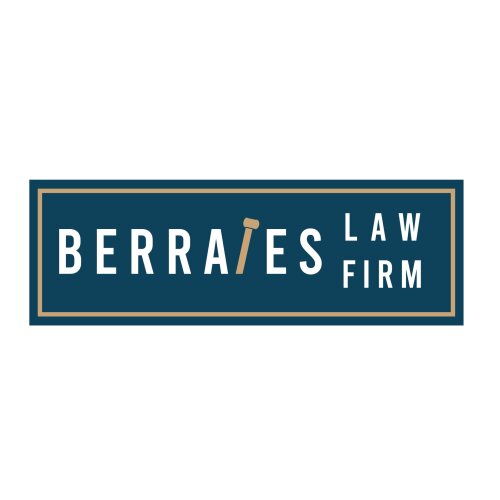Best Patent Lawyers in Tunisia
Share your needs with us, get contacted by law firms.
Free. Takes 2 min.
Or refine your search by selecting a city:
List of the best lawyers in Tunisia
About Patent Law in Tunisia
Patent law in Tunisia is governed by the Industrial Property Code, which was last revised in August 2000. This law protects inventions and encourages innovation by granting inventors exclusive rights to their inventions, preventing others from making, using, or selling the invention without the inventor’s consent. The Tunisian National Institute for Standardization and Industrial Property (INNORPI) is the main body responsible for managing patent applications and maintaining the patent registry. Patents in Tunisia are granted for a non-renewable term of 20 years, starting from the filing date of the patent application.
Why You May Need a Lawyer
There are several situations in which an individual or business may require legal assistance related to patents in Tunisia:
- If you are an inventor needing help to draft a patent application to ensure it meets legal requirements and covers all aspects of the invention.
- When filing a patent, it’s crucial to conduct a thorough patent search, which a lawyer can assist with, to avoid infringing existing patents.
- If you need to negotiate licensing agreements or seek enforcement against infringement of your patent rights.
- In the case of a patent dispute where either your or another's patent rights are allegedly violated.
- For strategic guidance on building and managing a portfolio of patents to protect ongoing research and development.
Local Laws Overview
Tunisia’s patent laws are aligned with international standards, including the TRIPS Agreement (Trade-Related Aspects of Intellectual Property Rights). Key aspects of the patent legislation include:
- Eligibility: An invention must be novel, involve an inventive step, and be industrially applicable to qualify for a patent.
- Exclusions: Discoveries, scientific theories, mathematical methods, purely aesthetic creations, and schemes, rules or methods for performing mental acts are not patentable.
- Application Process: The process includes filing an application with INNORPI, which involves providing a full description of the invention, claims, abstract, and necessary drawings.
- Opposition and Revocation: Once a patent is granted, challenges can be made regarding its validity, and a revocation process is available if the patent does not satisfy the required legal criteria.
Frequently Asked Questions
What is the duration of patent protection in Tunisia?
In Tunisia, a patent is valid for 20 years from the filing date, after which it cannot be renewed.
What types of inventions can be patented?
An invention should be novel, involve an inventive step, and be industrially applicable to be patentable.
What documents are required to apply for a patent?
The application must include a detailed description of the invention, claims, an abstract, and any necessary drawings.
Can I file a patent application in English?
No, the patent application must be filed in Arabic or French.
How long does it take to get a patent in Tunisia?
The patent process in Tunisia can take several years, depending on the complexity of the examination and any opposition proceedings.
Is there a grace period for filing a patent after public disclosure?
No, public disclosure before filing can destroy the novelty of the invention, making it unpatentable.
What happens if I miss paying the maintenance fees?
Failing to pay maintenance fees can result in the lapse of the patent protection.
Can I apply for an international patent from Tunisia?
Yes, Tunisia is part of the Patent Cooperation Treaty System, allowing for international patent applications.
How can patent infringement be enforced?
Patent infringement can be enforced through civil litigation where the patent holder can seek damages and injunctions.
What is the role of INNORPI in patenting?
INNORPI is responsible for the processing and granting of patent applications within Tunisia.
Additional Resources
For further assistance on patent-related matters in Tunisia, the following resources may be helpful:
- INNORPI: The main body for patent filing and regulatory information.
- Tunisian Industrial Property Office: Provides resources and guidelines on filing patents.
- Tunisian Technology and Innovation Centers: Offer support for inventions and the patenting process.
Next Steps
If you require legal assistance with your patent or have encountered a potential patent infringement issue, consider the following steps:
- Consult with a legal expert specializing in intellectual property law in Tunisia to gain specialized advice and assistance tailored to your situation.
- Gather all documentation and details pertaining to your invention, including any previous disclosures or legal correspondences.
- Engage with INNORPI for guidance on filing processes and ensuring compliance with local regulations.
- Consider attending workshops or seminars on patent law to better understand the patenting process and rights in Tunisia.
Lawzana helps you find the best lawyers and law firms in Tunisia through a curated and pre-screened list of qualified legal professionals. Our platform offers rankings and detailed profiles of attorneys and law firms, allowing you to compare based on practice areas, including Patent, experience, and client feedback.
Each profile includes a description of the firm's areas of practice, client reviews, team members and partners, year of establishment, spoken languages, office locations, contact information, social media presence, and any published articles or resources. Most firms on our platform speak English and are experienced in both local and international legal matters.
Get a quote from top-rated law firms in Tunisia — quickly, securely, and without unnecessary hassle.
Disclaimer:
The information provided on this page is for general informational purposes only and does not constitute legal advice. While we strive to ensure the accuracy and relevance of the content, legal information may change over time, and interpretations of the law can vary. You should always consult with a qualified legal professional for advice specific to your situation.
We disclaim all liability for actions taken or not taken based on the content of this page. If you believe any information is incorrect or outdated, please contact us, and we will review and update it where appropriate.
Browse patent law firms by city in Tunisia
Refine your search by selecting a city.










